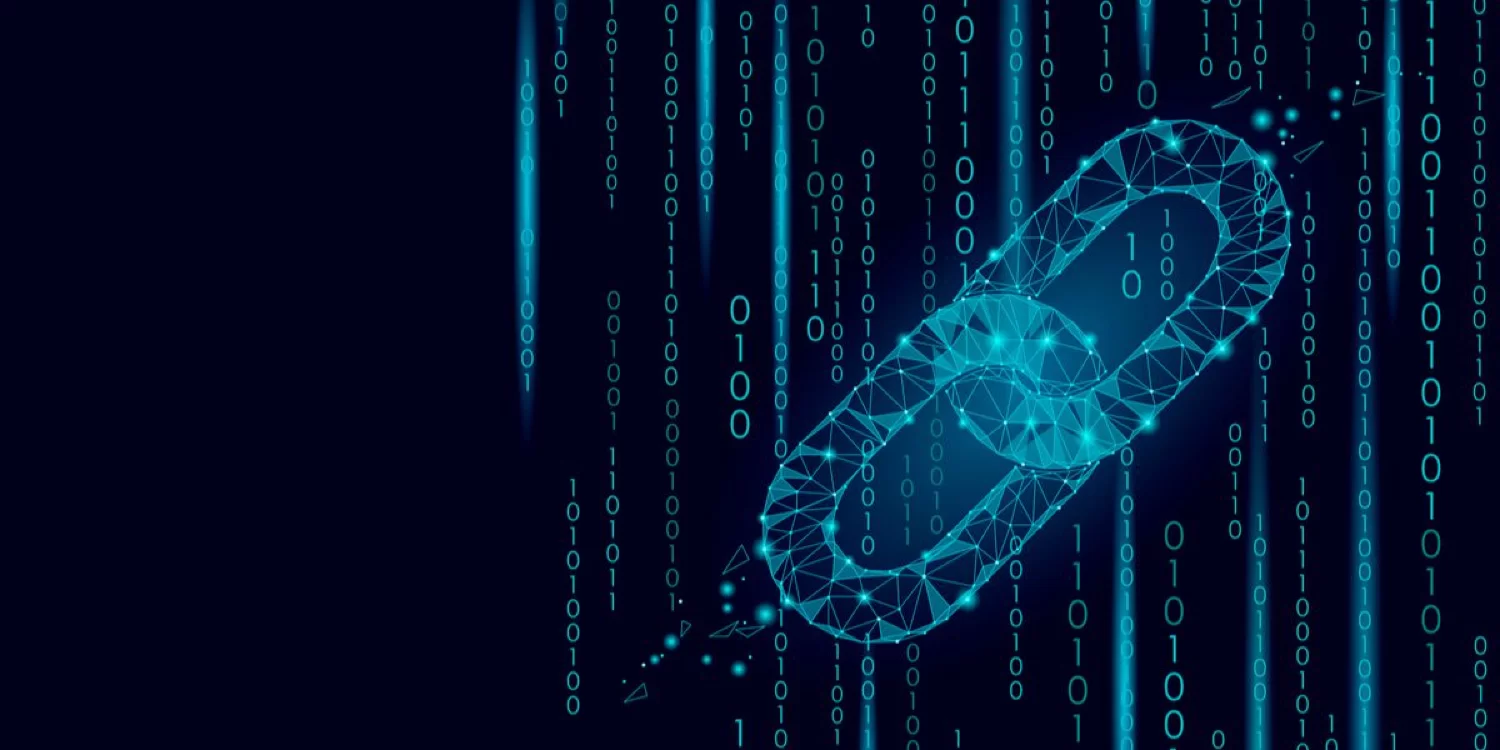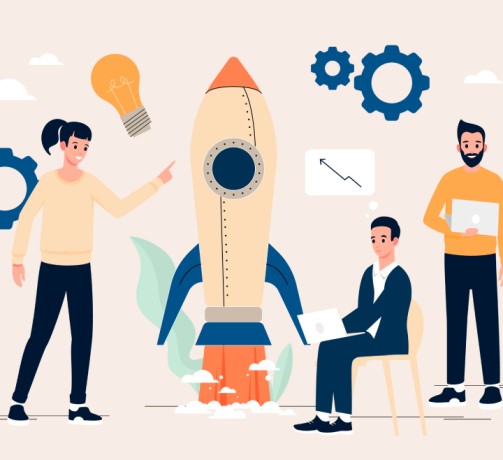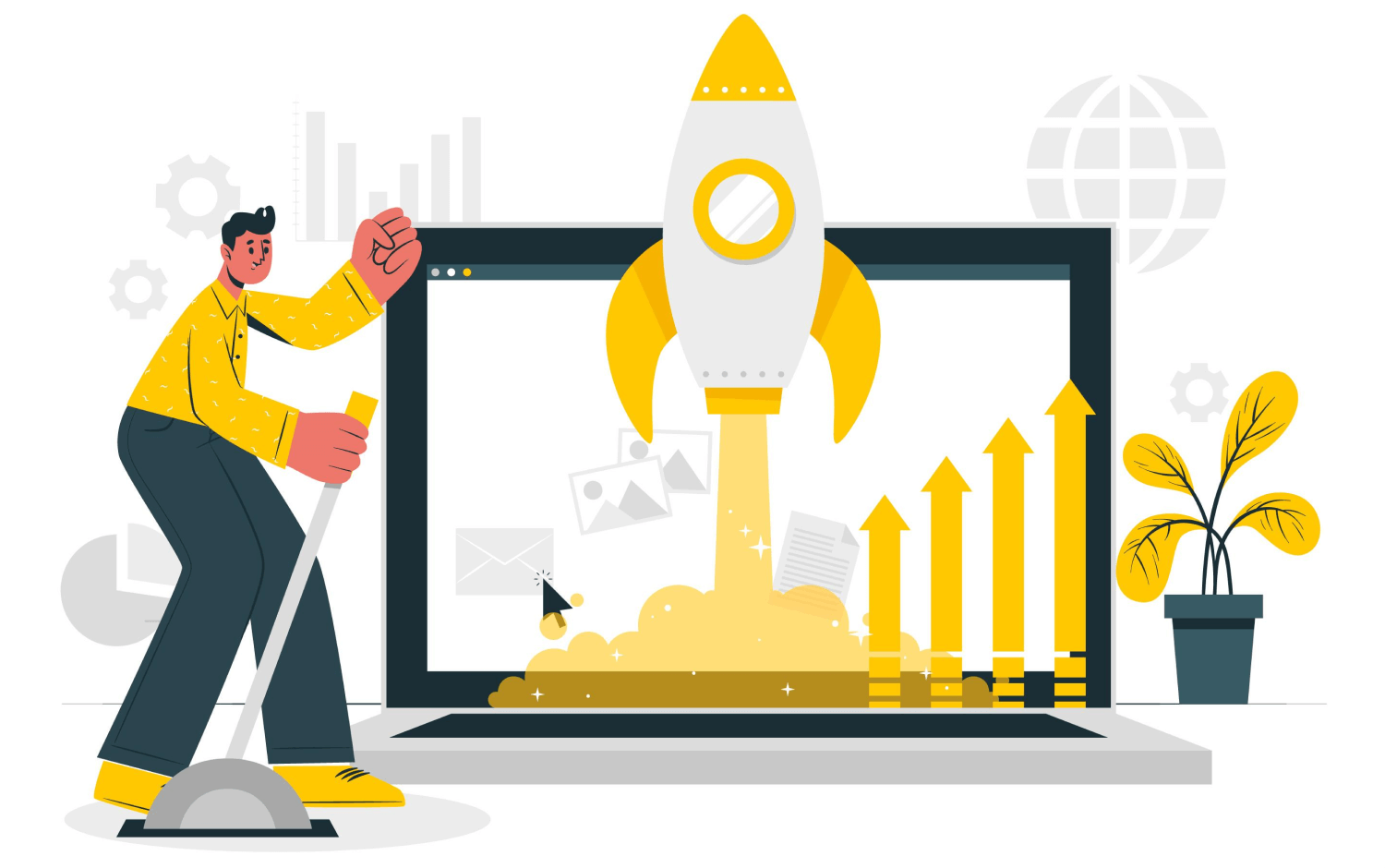The generation, interpretation, and use of data have become the pivots of business transformation. Companies of the digital era always look for ways to make intelligent use of data, leveraging the robust and latest technologies to boost growth and favor the development of new business models based on innovation.
When the talk is about technology and industrial growth, we can’t miss mentioning Artificial Intelligence and Blockchain which are, undoubtedly, today’s hottest tech fields in the limelight and on the verge to be explored more and more.
Yet with the disparity in their concepts, working, and applications, tech experts are leaving no stone unturned in mining the possible applications that could derive from their convergence.

Though both AI and Blockchain feed on data and have their own set of complexities, it is believed that they are near to the edge where they can collaborate and benefit each other and humanity, after all.
Blockchain is a decentralized, distributed, immutable ledger that stores encrypted data keeping all records safe and intact and Artificial Intelligence is an engine capable of analyzing and making decisions from databases.
Coupling them ideally, experts see the advantages of their duo and believe that blockchain can better facilitate AI’s understanding and the decision-making processes, offering high authentication and traceability.
Artificial Intelligence algorithms can augment the efficiency of blockchain processes far beyond what a computer system is capable of. AI can multiply the processing capacities of systems that carry out major blockchain tasks and deliver tangible results.
With all that said, let’s highlight some of the practical applications to be predicted and implemented when both AI and Blockchain are merged.
Probable Applications of Blockchain and AI Link Up
#Data Protection
As mentioned earlier, AI has a sheer dependency on data and uses it to keep improving it feeds on data and knows what is happening in the world.
And on the other hand, Blockchain is a storage ledger that processes encrypted data and allows the creation of completely secure databases that can be accessed by authorized people.
Their combination is seen as creating ideal systems that can store backup copies of valuable and sensitive information, thus, leveraging the management of databases at a large scale.
Data storage in a chain of blocks that is transparent, traceable, and immutable can be allowed to be consulted by AI algorithms upon verified authorization. This would ensure that the personalized recommendations offered by AI are safeguarded within the blockchain-powered repositories.
#Intelligent Processing Capacity
Blockchain being a robust technology and powered by complex and effective mechanisms requires great processing power and efficiency. Whether we talk about cryptocurrency mining or smart contracts or any other robust application of blockchain, all of them require procedures that meet the problem statement before verifying a transaction.
This is where AI can support in executing multiplex and complicated tasks with multiplied efficiency that too intelligently and smartly. An algorithm based on machine learning could hone its skills in real-time, as long as it is provided with the right data to train.
#Enhanced Confidence in AI Decisions
AI systems that are currently used in different industries to augment data-driven decisions require robust algorithms and programming to process huge amounts of data and variables.
To ensure the predictability/assurance of the results rendered by AI systems, these findings will still need to be audited to make sure that they continue to reflect reality in the form of accurate conclusions and decisions.
Here, blockchain’s super splendid features of keeping the data record(s) unbending and unchangeable can be used to keep the records of AI data, variables, and processes (accompanied in decision-making) intact and fixed. This facilitates audits of the processes to make them smooth and seamless.
Blockchain guarantees the non-tampering of data and offers complete visibility of all the steps taken from data entry to conclusions, thus, allowing experts to check the authenticity of results delivered by AI-enabled software systems.
#Data Monetization
One of the blockchain properties is that it eliminates the need for intermediaries and third parties. This leads us to say that Blockchain allows us to protect our data cryptographically and ensure that it is only used as we see fit.
In this way, it will also allow us to monetize this data for our benefit when we decide to do so, without putting our personal information at risk.
This is important to combat algorithmic biases and create diverse databases in the future. The same can be said for artificial intelligence programs that need our data. For an artificial intelligence algorithm to be able to learn and develop, artificial intelligence networks will have to buy data directly from their creators, through data exchange platforms.
In this way, much more equitable processes than the current ones will be created, preventing the technological giants from exploiting their users.
These data-sharing platforms will also make artificial intelligence available to smaller companies. Developing and feeding an artificial intelligence algorithm has a tremendous cost for those companies that are not able to generate their own data.
Only through these decentralized platforms can they have access to the large data banks that are currently banned from them.
Final Considerations
The union of these two technologies will allow data to be used in ways that now seem impossible.
Data is the key ingredient for the development and improvement of artificial intelligence algorithms and blockchain technology allows it to be stored securely and to audit all intermediate steps of artificial intelligence in its decision-making processes.
“AI and Blockchain harbor the tremendous potential for disruption in the business world.”
Allow CodeGlo to reap the benefits of these robust technologies for you and facilitate improvement of operational efficiency through its AI and Blockchain Development Services and enable rapid response to changes in the digital market.







